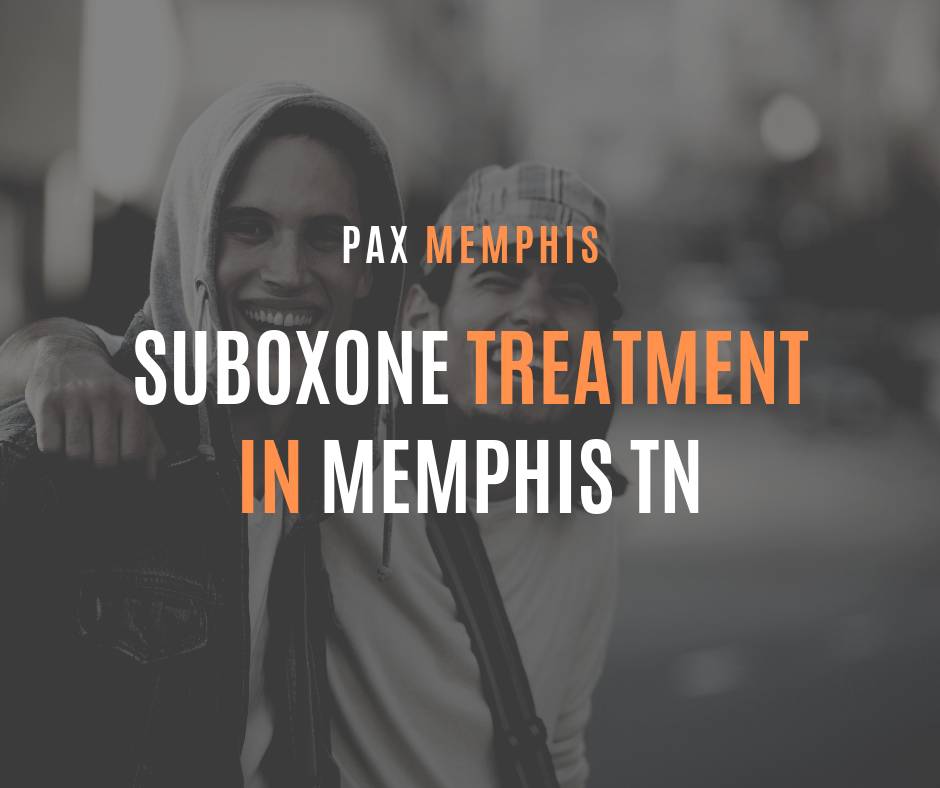Suboxone Treatment in Memphis
As the opioid epidemic continues to ravage the lives of individuals throughout Tennessee, addiction treatment centers have begun to adjust their treatment approaches to better meet the needs of those suffering from opioid addiction. The use of Suboxone in medication-assisted treatment plays an important role in helping those who are addicted to opioids begin their journey of recovery.
Suboxone
Suboxone is a medication used to treat those suffering from opioid use disorders. Suboxone contains buprenorphine and naloxone which work together to help reverse the side effects of opioids like heroin and prescription painkillers. It is also effective in preventing unpleasant withdrawal symptoms that often result from opioid addiction.
Buprenorphine is a partial opioid agonist that activates the opioid receptors to prevent withdrawal symptoms and cravings. It releases small amounts of opioids over an extended period of time. Naloxone, which is also the chemical used to restore a person’s breathing if they have overdosed on opioids, is used in Suboxone to reverse the effects of opioids. If a person takes an opioid while on Suboxone, they won’t be able to feel the euphoric effects from it due to the naloxone.[1]
Prior to Suboxone, methadone was frequently used in medication-assisted treatment, but it was found to have a high potential for abuse. Suboxone is considered a safer method in treating opioid addiction because it isn’t as addictive as methadone.
How Suboxone is Used in Medication-Assisted Treatment (MAT)
Suboxone is a type of opioid replacement therapy that is highly effective in MAT in Memphis. It can be prescribed by a treatment center physician or a licensed doctor. It is typically prescribed at the beginning of treatment or during detox and can be continued throughout the early stages of recovery.
Although Suboxone can help mitigate the symptoms of opioid withdrawal, individuals should refrain from taking it until 8-14 hours after their last dose of opioids. This time frame will depend on what kind of opiate was taken and how high of a dose it was. A healthcare provider will determine when Suboxone treatment should begin. Taking Suboxone sooner than this may result in worsening withdrawal symptoms.[2] Some withdrawal symptoms that can result from taking Suboxone too early include:
- Sweating
- Shaking
- Nausea
- Vomiting
- Diarrhea
- Body aches
- Anxiety
- Irritability
- Runny nose
In addition, it is crucial to participate in a comprehensive addiction treatment program while taking Suboxone. Although it is used to help manage withdrawal symptoms and mitigate cravings, counseling and therapy are essential for individuals to achieve long term sobriety.
A comprehensive treatment program will develop a specialized treatment plan tailored to each individual’s specific needs. While Suboxone takes care of the physical symptoms of opioid addiction and helps reduce cravings, individuals have the opportunity to focus on their treatment. Counseling and therapy will help those who are suffering by identifying the underlying causes and symptoms of their addictions and teach them how to cope with their emotions in healthy ways. The tools that are taught in drug rehab in Memphis are what will help individuals sustain their sobriety, while Suboxone allows them to engage in treatment.
The length of time that individuals will take Suboxone will vary. It will depend on their progress in treatment and the professional opinion of their doctor. However, Suboxone therapy does not have to be permanent.
Suboxone Side Effects
Like any drug, Suboxone doesn’t come without side effects, However, many of these side effects are milder than those that occur during opioid withdrawal. The most common side effects of Suboxone are:[3]
- Headaches
- Anxiety
- Insomnia
- Depression
- Constipation
- Nausea
- Fatigue or weakness
- Back pain
- Burning tongue
- Redness in mouth
The majority of these side effects will subside within days or a couple of weeks. However, if more serious side effects like allergic reactions, breathing problems, or withdrawal symptoms occur, the medication should be stopped with the help of a healthcare provider.
Benefits of Suboxone Treatment in Memphis
When Suboxone is used simultaneously with a comprehensive treatment plan, it can provide individuals with a solution to manage their opioid addiction.
“In June 2018, Suboxone was reported to have reduced drug overdose rates by 40 percent.”
In addition to helping manage withdrawal symptoms and cravings, Suboxone treatment in Memphis can also help individuals by:
- Providing pain relief
- Causing those who take the medication to feel calm
- Fewer worries and reduced stress
- Feelings of relaxation and well-being
- Reducing the chance of relapse
- Raising the success rate of treatment retention
- Reducing the chance of medication abuse
“Many case studies have been done on Suboxone that has suggested it helps increase the chances of sobriety of patients during long term and short term recovery treatment plans.”
Getting Suboxone Treatment at PAX Memphis Recovery Center
Since Suboxone is not a cure for opioid addiction, addiction specialists in Memphis ensure that top-notch care in drug rehab is provided for individuals suffering from opioid addiction. The Suboxone program at PAX Memphis combines Suboxone therapy with comprehensive addiction treatment to help individuals start living free from opioid addiction. If you or a loved one is suffering from opioid addiction, contact our drug rehab in Memphis today to learn more about our Suboxone program.
Resources:
